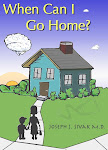As a "consumer" a patient, I like to think that overall at 48 I am in pretty good health. The Health Care legislation and the political history that will be made, frankly scare me half to death as a patient.
As a physician it demoralizes me. Things are bad now, I can't practice medicine to much without a bureaucratic entity telling me what I can and can;t do even in private practice. I can't prescribe the correct and appropriate medication to help a patient without begging some non-medical person for permission and fighting through stacks of paperwork and forms, meant to break down the doctor so you give up and prescribe something less than optimal. (Cost Containment)
My innate and 20 years of clinical wisdom and experience are not rationally challenged but instead are beaten down daily. My ethical sense is constantly urged to be compromised every day, yet I keep fighting for my patients. Maybe to no avail.
I am told who I can and can not refer a patient to regardless of if I know whom the best person is. The insurance company does that, regardless of whom is the best.
I am used to that. From what I can see (although like everyone else including many of the Senators I did not read the thousands of pages of the bill), that is NOT going to change. It may even get worse. It most likely will get worse. It really does not seem like REFORM. It is hard to follow S. 1796 America's Healthy Future Act.
Check it out at open congress introduced by Senator Baacus from Montana back in October.
http://www.opencongress.org/bill/111-s1796/show
Then there is Harry Reid. I heard him addressing the senate the other night and he cited some really sad stories of patients scenarios in Nevada, and not being able to access health care. He sounded really sad for these people like he cared.
"Reid is a first generation member of The Church of Jesus Christ of Latter-day Saints.[56] Reid and his wife, who was born to Jewish parents, converted to Mormonism while Reid was a college student.[3] He stated in an interview with Brigham Young University's Daily Universe that "I think it is much easier to be a good member of the Church and a Democrat than a good member of the Church and a Republican." He went on to say that the Democrats' emphasis on helping others, as opposed to what he considers Republican dogma to the contrary, is the reason he's a Democrat.[57] He delivered a speech at BYU to about 20,000 students on October 9, 2007, in which he expressed his opinion that Democratic values mirror Mormon values.[58]"
























